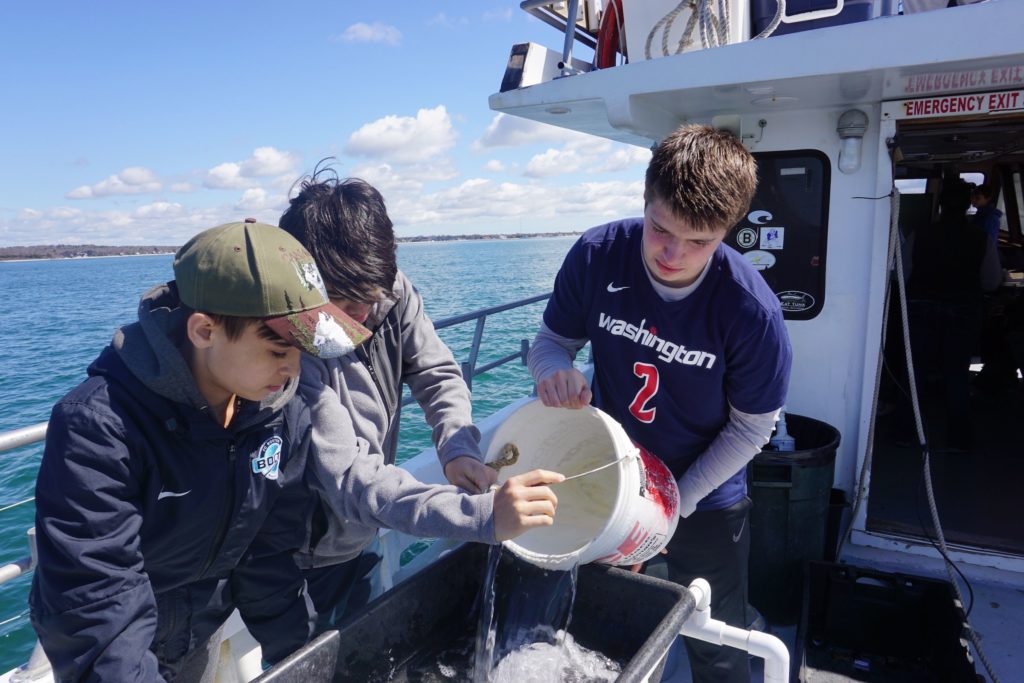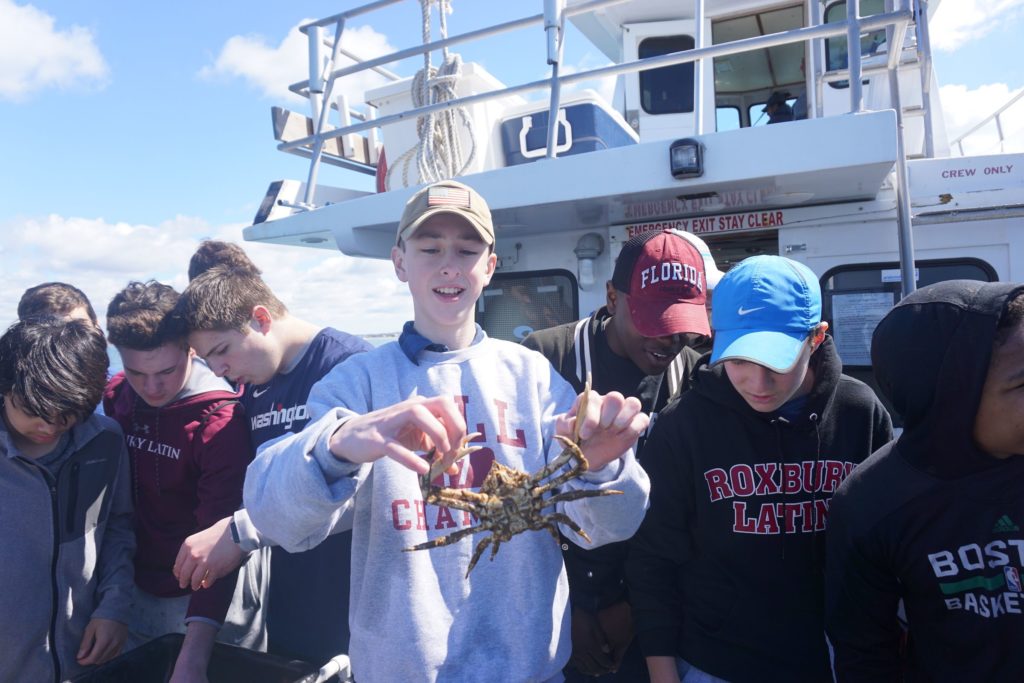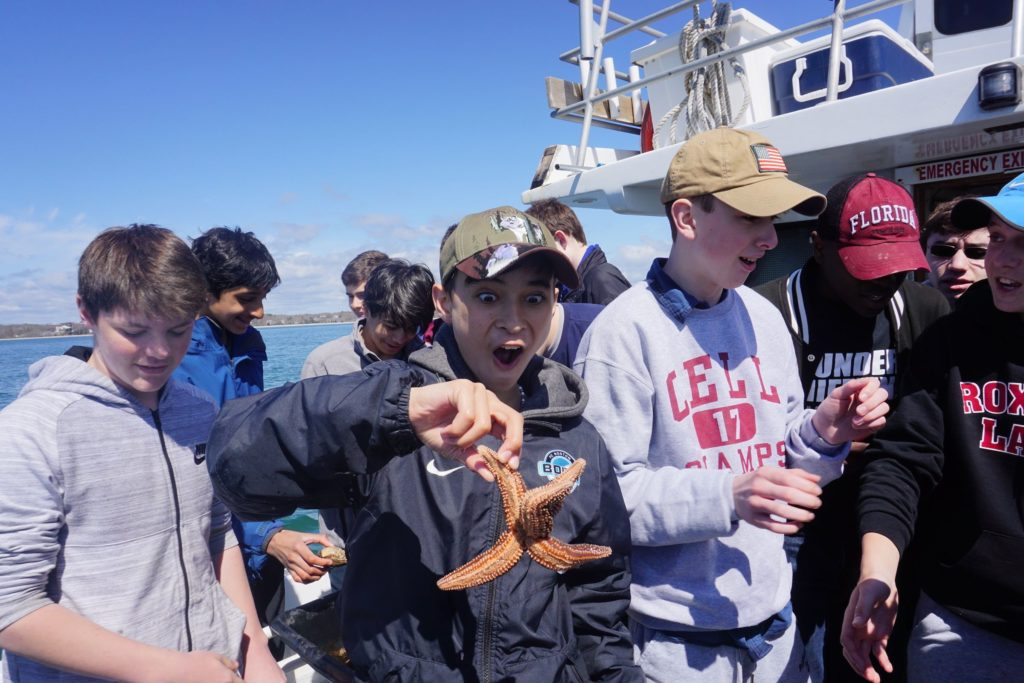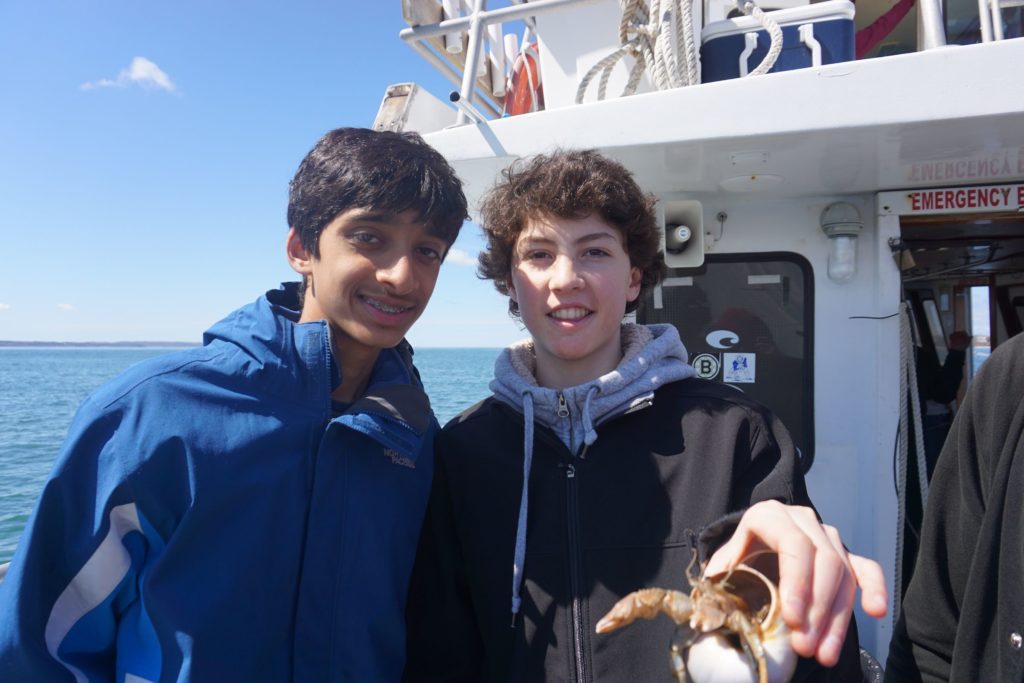Ecological Research At Woods Hole For Class V Boys
Each spring, boys in Class V enrich their science curriculum with a day trip to Woods Hole Oceanographic Institute (WHOI), on the southeastern point of Cape Cod. For nearly 15 years, this hands-on experience has been a popular culmination of students’ fourth marking period studies in their Introduction to Physical Science course, which focuses on water quality.
Through RL alumnus Mike Earley ’87, the science department faculty communicated with Rob Reynolds, a Woods Hole Guest Investigator and founder of the Zephyr Education Foundation. Mr. Reynolds organizes educational investigation experiences for students using a boat that easily fits the entire class and includes sampling and video monitoring equipment. Onboard, students are able to view (through a camera filming the bottom of the ocean in real time) different ecosystems existing at different depths. Using his sampling nets Mr. Reynolds collects organisms from the sandy ocean bottom for the students to handle and examine up close.
Once the boys disembark, they hear from Dave Bailey—a research assistant in applied ocean physics and engineering. This year, he spoke with the boys about aquaculture from both scientific research and commercial perspectives.
With the help of RL alumnus Jim Flynn ’75—a member of the Woods Hole development team—students were invited aboard the US Navy’s state-of-the-art research vessel, the Neil Armstrong, which is operated by WHOI.
“The entire day has great value to the boys,” says Dean of Students Paul Sugg, a member of the science faculty and longtime teacher of the IPS course. “Just being away from campus, as a class, is a good way to spend a day, but being able to experience, firsthand, the life and work of a major research community—that’s invaluable to the boys. They get a sense of how significant Woods Hole is in the world of biological research. And because we have all these wonderful RL alumni who help us make this kind of trip happen, the boys gain perspective on the value of the broader RL community. They understand another way in which they might contribute to the school once they’ve graduated.”
On the trip home from Woods Hole, the group stops at a salt marsh to study, close-up, an estuary, which is relevant to the topic they’re covering in class.
“When the boys return to class, they’re presenting projects related to their study of Charles River water quality, and every year there’s mention of what we saw at Woods Hole, what we learned down there. It’s all connected,” says Dean Sugg. “When we began the Charles River water quality testing unit 15 years ago, water quality wasn’t as much of a mainstream story. That area of science has only become increasingly relevant and applicable.”




